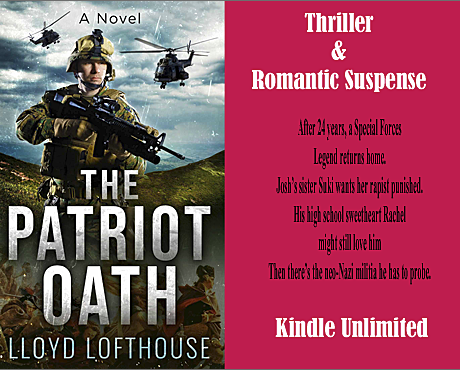While I was in Vietnam, many Marines in my communication’s platoon didn’t get mail—ever. Since my family and friends wrote often and sent packages with cookies, candy and books like Anne Rice’s Interview with the Vampire and Tolkien’s Lord of the Rings, I had books to fill the days when we weren’t in the field. At night when I was on radio watch in the bunker, I read too. I shared with my “brothers” in uniform who didn’t get anything. The cookies were popular. I loaned the books out too.
If someone who has never faught in a war listens to the news, it sounds like our troops are fighting 24/7. My mother believed it. Evertime she heard about combat and deaths on the news, she cried. My dad told me this after I came home.
Too bad, she didn’t know the truth. During those down times, soldiers get lonely and think about home. For me, books helped fill the empty hours. Those books also helped get my mind off what was waiting at night and beyond the wire when I wasn’t on a field operation, out at night with patrols or was involved in ambushes that we were setting up. No one wants to be the target of an ambush we don’t plan—I was the target in a couple of those too.
Because of my experiences in Vietnam, during the first Gulf War (2 August 1990 – 28 February 1991), I organized a letter writing campaign with my secondary English students in La Puente, California. One girl’s older brother was in Kuwait, then he moved on to Iraq after the war started in earnest. When his letters arrived, class time was set aside for his sister to share what was happening to him. I feared we might hear he had been killed. But he was fortunate and made it back in one piece.
Recently, I joined Operation E-Book Drop. This program offers free e-books to our troops in Iraq and Afghanistan. Any troop with a computer may sign onto Smashwords.com and download a book if they have the coupon code. They have to request the codes through the program. More than two hundred authors and nine publishers have joined this program.
Another program, Book Readers for SF (Special Forces—kindlesf@gmailcom), is putting Kindles in the hands of troops that belong to Special Forces in Afghanistan. Many of these soldiers are stationed in remote, rugged, mountain outposts.
Now, I’m adopting a Spc. in an Aviation Regiment from Operation Desert Swap — http://operationdesertswap.webs.com/.
I’m mailing a copy of my novel, My Splendid Concubine, and will send cards and gifts when holidays come along. Once we have been in combat, I don’t think any veteran forgets what it was like.
Discover Stanford Study shows effects of PTSD trauma on brain
_______________________
Lloyd Lofthouse, a former U.S. Marine and Vietnam Veteran, is the award winning author of The Concubine Saga.
His latest novel is Running with the Enemy. Blamed for a crime he did not commit while serving in Vietnam, his country considers him a traitor. Ethan Card is a loyal U.S. Marine desperate to prove his innocence or he will never go home again.
And the woman he loves and wants to save was trained to hate and kill Americans.
To follow this Blog via E-mail see upper right-hand column and click on “Sign me up!”
